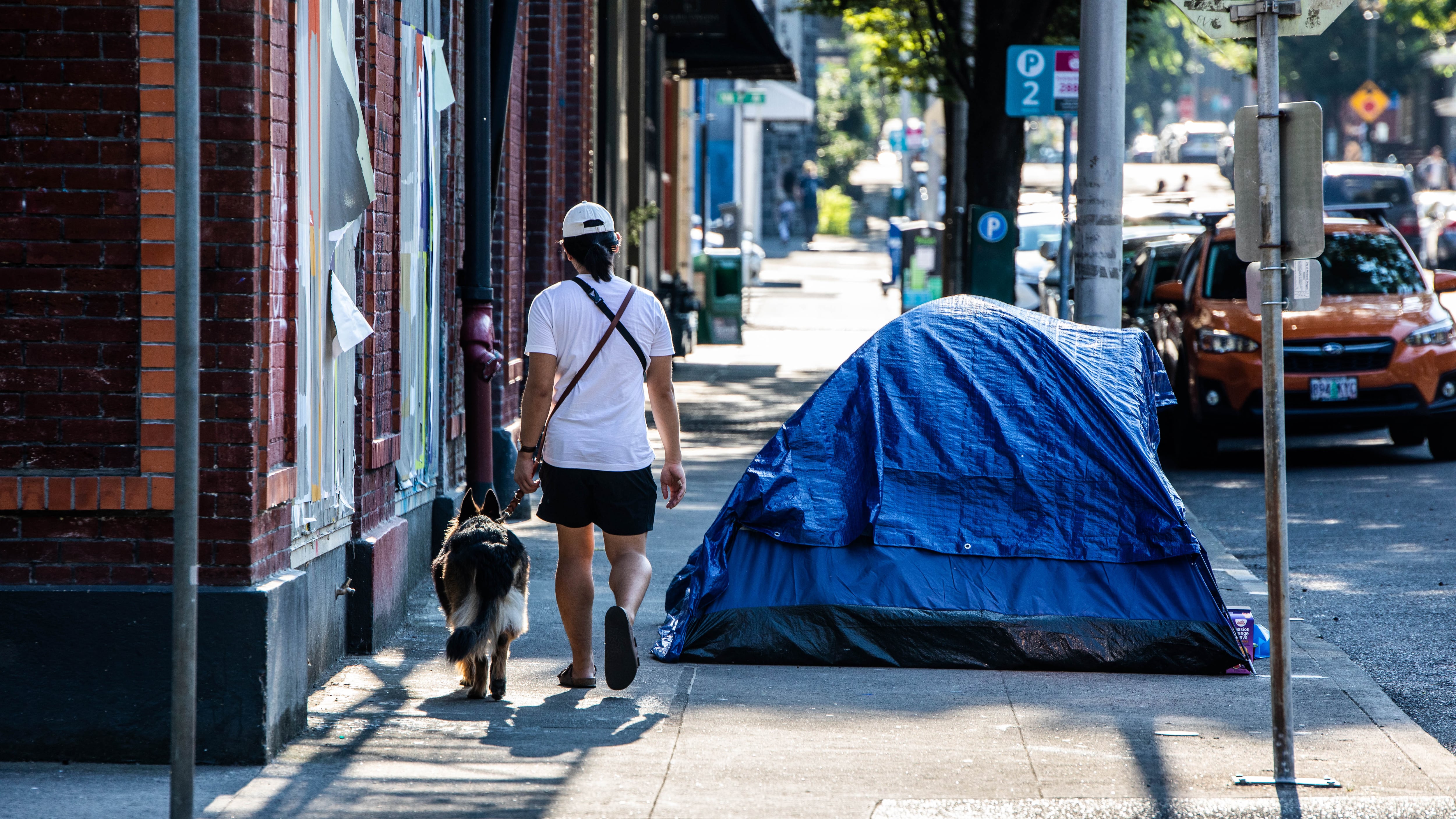When it comes to recovering from the pandemic, downtown Portland is bringing up the rear.
That’s the conclusion of researchers at the University of California, Berkeley, who are using cellphone GPS data to see how many people are returning to businesses, bars, restaurants, and other attractions in 62 downtowns around the county as the COVID-19 pandemic ebbs.
In the latest period, March through May of this year, Portland came in 60th, with a recovery value of 41% compared with pre-pandemic activity. Only San Francisco (31%) and Cleveland, Ohio (36%) fared worse.
Salt Lake City topped the list in terms of people returning to downtown at 155%.
Berkeley researchers get the data from a company called SafeGraph Inc., which tracks 18 million smartphones in North America and reports visits by people carrying those phones to businesses, offices, shops, restaurants, parks, community facilities and stadiums.
Cities like Portland and San Francisco are suffering because they are home to many employees in technology who can abandon the office and work from home, researchers say.
“Early in the COVID-19 pandemic, the media began reporting significant migration out of cities, particularly a flight of knowledge and tech workers towards the suburbs or other cities,” the researchers said a June report. “Places with a higher share of employment in knowledge-based industries and occupations, and/or more highly paid workers, are more likely to shift towards remote work.”
The Berkeley team didn’t look at factors like homelessness, trash or crime, which are often cited by Portlanders for why they don’t go downtown as often.
“It’s the constellation of crime and homelessness that concerns Portlanders,” says John Horvick, a senior vice president at polling firm DHM Research.
The shift out of downtown could be permanent for up to half the workforce in large, congested cities like New York, and tech-powered cities like San Francisco, the researchers said.
To be sure, the rise of remote work may have more to do with a rise in housing prices and a shortage of high-skilled labor, both of which preceded the pandemic, the researchers said.
“Either way, a lively debate is emerging about whether the pandemic will lead to a full-blown, 1970s-style urban crisis or more of the adaptive bounce back we saw in many downtowns after the Great Recession,” they said.
